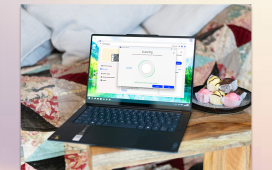A bipartisan bill requiring the Department of Homeland Security to explore how artificial intelligence and other emerging technologies could be used to secure the border passed the House on Monday, teeing it up for a potential Senate partner in the weeks ahead.
The Emerging Innovative Border Technologies Act from Reps. Lou Correa, D-Calif., and Morgan Luttrell, R-Texas, passed the chamber by unanimous consent, a little more than five months after it was introduced and quickly advanced out of the House Homeland Security Committee.
Under the bill, the DHS secretary would be charged with submitting a plan to Congress for how the agency would utilize AI, machine learning and nanotechnology in border security efforts. Customs and Border Protection’s innovation team would pilot technologies across key border regions, with the goal of helping agents more effectively and safely do their jobs.
“Border security means keeping drugs and other negative elements away from our communities — and cutting-edge technology that is already available for commercial use gives our hard-working officers the tools they need to keep us safe,” Correa said in a press release. “Through this bipartisan effort, Congress will better-understand how our officers can use new technology to stop smugglers crossing in remote and deadly conditions, and hopefully deliver our officers the resources they so desperately need.”
Some of the technologies mentioned in a fact sheet announcing the bill’s passage include infrared cameras and ground-based sensors to help officers identify smuggling and human trafficking operations. Advanced AI-powered image recognition systems could also be used to “help detect and classify illicit substances at ports of entry,” the fact sheet said.
Correa, ranking member on the House Homeland Security Subcommittee on Border Security & Enforcement, “is cautiously optimistic that following its swift and bipartisan consideration and passage in the House that his colleagues in the Senate will follow suit to get this common-sense legislation signed into law,” a spokesperson for the congressman told FedScoop.
Optimism for a Senate companion, most likely coming out of the chamber’s Homeland Security and Governmental Affairs Committee, is due in part to the “non-controversial” nature of the legislation, the spokesperson added.
Luttrell, who serves with Correa on the border security subcommittee, said in a statement that the country “must deploy the latest and most advanced technologies” to combat increasingly sophisticated threats to the border.
“I’ll continue to push for effective measures to safeguard our country and enforce our laws,” he said.








